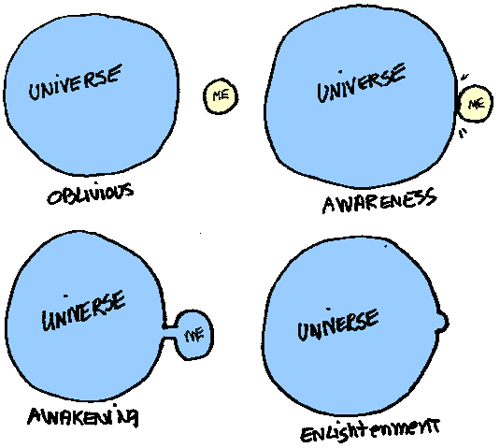Doc Searls –who happens to be the same age as I– draws some insight from the movie No Country for Old Men:
“The central figure, Anton Chigurh, played by Javier Bardem, is a psychopathic killer who personifies death and chance in unequal measure.
His motives? His quarry is money, but that’s just a point on a path. There is no doubt that he will get the money, and that people will die along the way. But death itself has no motive. It is merely inevitable. Like Anton Chigurh. The Terminator, the Alien, the guy DiNiro played in Cape Fear… all the relentless bad guys we’ve known… don’t compare easily with Chigurh. Because all the others could be, and were, defeated.
Death can’t be defeated. In Chigurh, it could only be wounded, because he is death in human form. But he is still death.
Which is on my mind more as I get older. The old men in the movie — Tommy Lee Jones and cohorts of his generation — are barely older than me, if they’re older at all.
Being older, if not yet “old”, requires increased acquaintance with the certainty that Your Time Will Come.
I plan to procrastinate. For some things that’s a helpful skill.”
I’ll be 60 years old next Saturday and, like Doc Searls, mortality has been more on my mind. In coming days I might post a thought or two on birthdays that end in zero and what –if anything– I’ve learned in the last 6 decades (I like the sound of that better than “sixty”). But once the day has come and gone, I’m going to try not to think/write about it.

